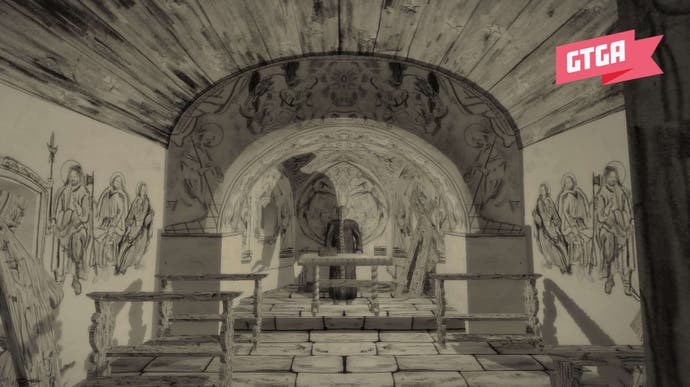Mundaun review - striking hand-drawn horror that almost nails it
Sketchy.
Editor's note: Hello! Over the next few days we're running a "Games That Got Away" series, where we finally get round to reviewing games that released at some point in 2021 but, for various reasons, we couldn't quite manage to cover at the time.
We've gone back to a few real gems, so for more catch-up reviews like this one head to the Games That Got Away hub, where all our pieces from the series will be rounded up in one convenient place. Enjoy!
As the ski lift crests the hill, I see them. Dozens and dozens of them, poking up stiffly from the snow, rigid and unmoving. Heads hanging low, rifles buttressed against their left shoulders, I don't know if these soldiers are alive or dead. I don't know if they're real or a figment of my imagination. All I do know is that they freak me out - it's easily the most unsettling thing I've experienced thus far, which is something, given I've spent most of my time here feeling hopelessly on edge - and I have no desire to get any closer to find out one way or the other.
Mundaun does this a lot. It tip-toes between the real and the imaginary, the mighty and the mundane, staggering between this place and a dark, otherworldy one where an old man in a jaunty hat still broods over a decades-old contract. To his thinking, he was swindled. Others believe the old boy got what he deserved. You - Curdin, an innocent party by all accounts, led to this place following the death of your grandfather and a peculiarly cold letter from the local priest - set off up the Swiss Alps to find out why.
When I hear the term "hand-drawn", I think of cartoons. Pastel colours. Fluffy clouds and breathlessly blue skies. Mundaun, however, has none of these things. Every stroke of the pencil - and pencil is all we'll see here, as the sleepy village of Mundaun is portrayed only with lead and shades of sepia - is harsh and unforgiving, making this world a peculiarly dark and angular place. Sometimes, the artistic method works against you; it's very hard to follow maps that have been angrily scrawled, without scale, by hand, and sometimes things get so dark - literally as well as figuratively - you might find yourself scrambling around in the inky night without a clue as to what's ahead of you. But this absence of colour makes for a dreamy, disquieting adventure, too.
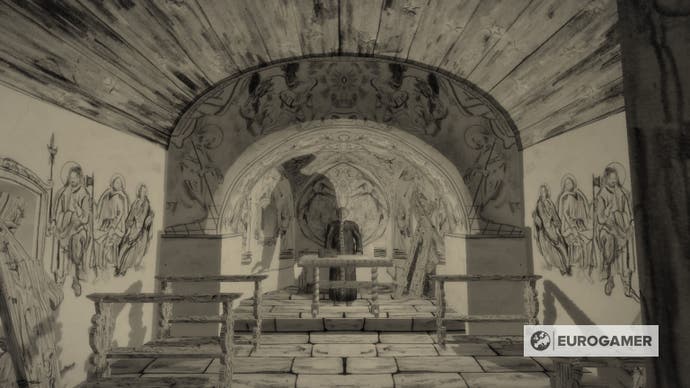
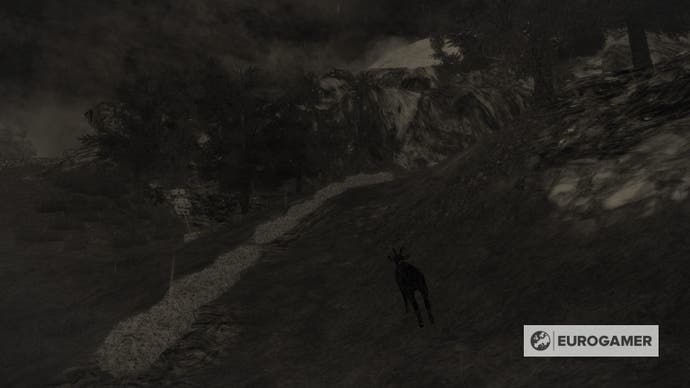
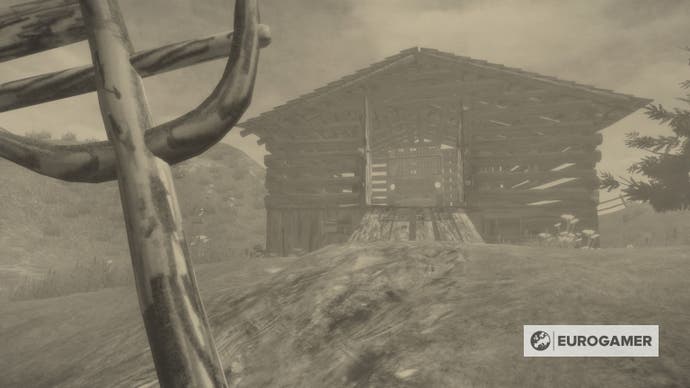
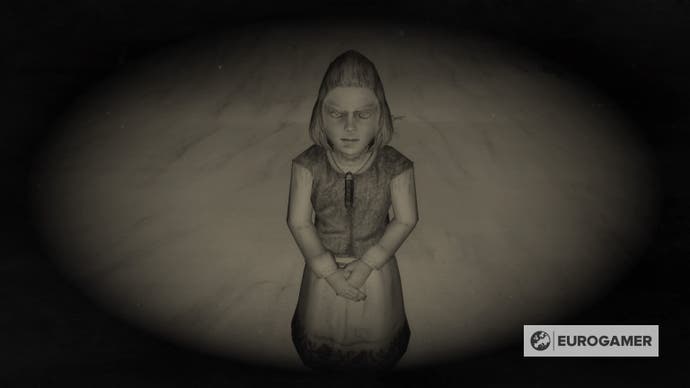
As satisfying as Mundaun's story is - a tale rich in ancient folklore and told entirely through Romansh, the rarest spoken language in Switzerland - the gameplay itself is sadly less robust. There's a "fear" system, for instance, but one that seems utterly unnecessary, easily circumvented just by backing up a couple of steps. Though the world is small and there are plenty of opportunities to loop back and unlock a door you saw earlier in your adventure, your time will chiefly be spent trudging up and down the mountainside on various, uninspiring fetch quests - occasionally even hunting down items you've been sent to find before, too - or seeking out keys for the game's plentiful locked doors. Interacting with the world around you is troublesome - the button prompt may pop up in front of this sink, but hitting it will, for inexplicable reasons, open the door five feet away to your right - and manoeuvring your grandpa's old hay mobile, the Muvel, may leave you yearning for the sophisticated handling of a shopping trolley.
There's combat, too - well, sort of - but like a lot of horror games, you may find defence is the best kind of offence, not least because the hayforks you encounter are degradable (ugh), and Curdin sways his rifle so outrageously, it essentially renders it useless (this was desperately disappointing, not least because you're teased by scavenging ammo for it hours before you're able to unlock it). You can, however, use matches to set bundles of straw alight in the hope the flames will lick the trail that leads to the ungodly denizens lurking in the back, but doing that inevitably leaves you in a very precarious - and hot - position, too. Perhaps you'll learn as I did that the Muvel and your trusty sledge double up as marvellously mobile murder machines.
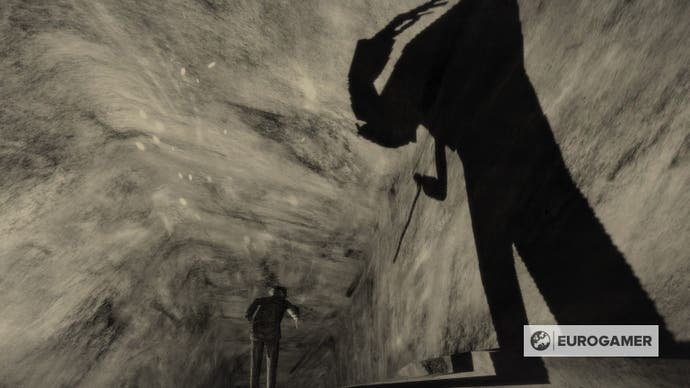
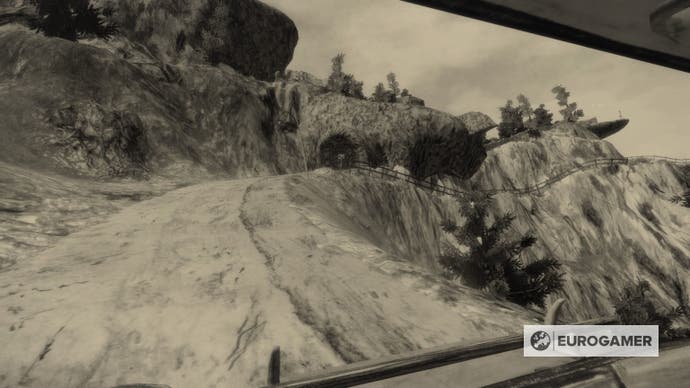
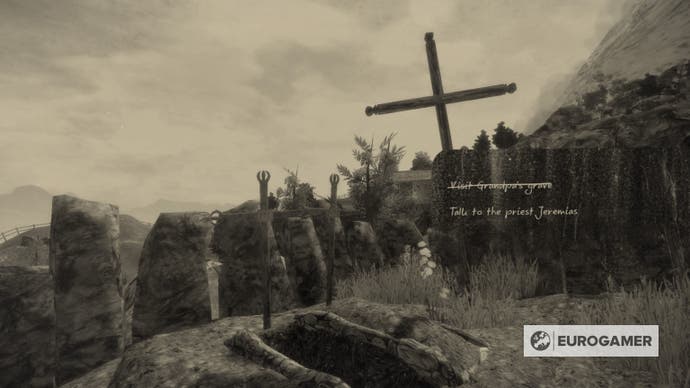
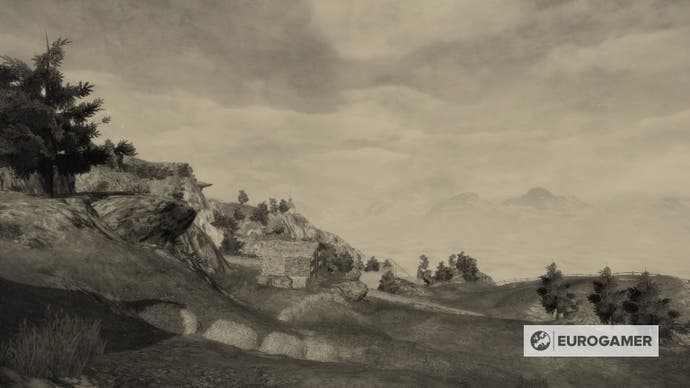
The very first monstrosities you encounter were the worst for me, by the way. Though slow and a touch inelegant, they shamble across Mundaun - half-human, half-haystack - their frustrated roars bouncing off the bruised sky. Get too close, and your heartbeat trebles as a razor-sharp crown of hay stabs into your peripheral vision, and the fingers of your left hand - indelibly marked by that old man at the start of your journey - curl and warp, snapping and cracking like kindling on a bonfire.
If that all sounds a bit weird, that's because it is. Mundaun's grip on reality gently ebbs and flows throughout this curious tale. This is a game where the protagonist can pee - mandatorily, at times - and the haunting hymn-like tunes that drift out of radios are collectible for reasons I still don't quite understand. A magic bell can lead the way in a snowstorm and we're followed around by a mute girl with the feminised name of our grandfather - yet Curdin doesn't feel this is worthy of note?
Curdin doesn't note much, actually. Despite the horrors around him - walking haystacks and ghostly soldiers and a strange reimagining of the abominable snowman and weaponised bees and a severed goat's head that's always up for a chat - he's a curiously detached fella. From the moment he sees what's waiting for him in the ashes of his grandfather's burned-out barn right up until he departs the village, snaking down the same mountain pass he journeyed upwards four days ago, he seems neither surprised nor particularly bothered at what he sees and learns. It's not that I want Curdin to be one of those terminally dull protagonists that endlessly chitters to themselves, nudging along the story with tedious exposition dumps, but his utter lack of alarm is jarring to the point of disbelief. I could understand it, I guess, if it was a neat little narrative device, but it's not. It's just... well, weird.
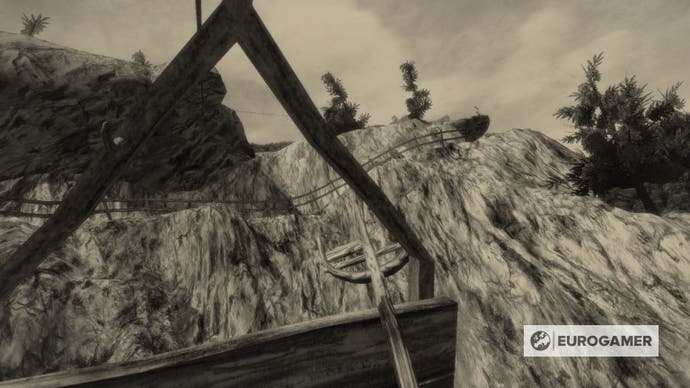
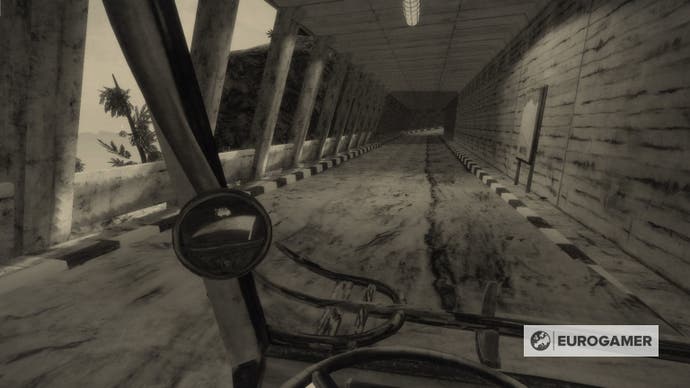
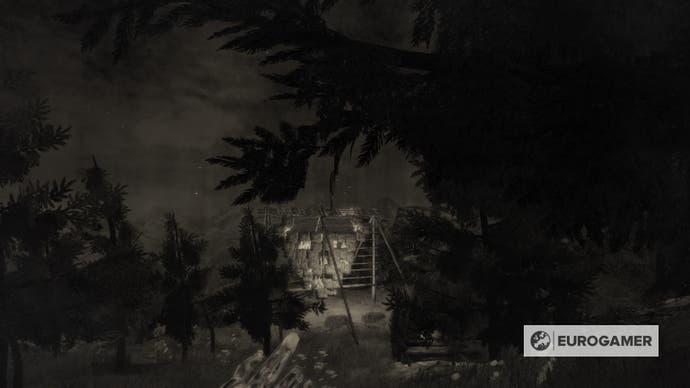
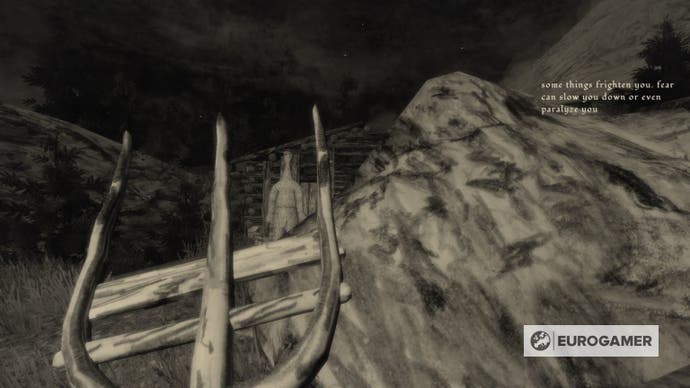
That's not to say the voice acting isn't good; like the sound effects and accompanying soundtrack, the voice work is understated but effective, and I thought the decision to tell the entire tale through the native language was a bold but brilliant one. And while I appreciated its unique presentation, Mundaun's intriguing premise is compromised by those lacklustre gameplay elements, the repetitive fetch quests and occasionally opaque puzzling, and that fear system that doesn't seem to add much at all.
2021 has been a good year for horror, and Mundaun can stand proudly amongst its peers. Whilst mechanically it might not be the best game you've ever played, it's still a memorable and distinct adventure - and one that I certainly won't soon forget.
